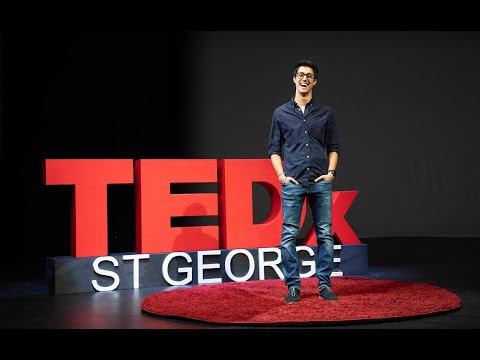As we leap into 2024, AI public speaking isn’t just a trend; it’s reshaping the game for presenters and communicators everywhere. Innovative tools are hitting the scene, giving speakers sharp advantages in refining delivery, engaging audiences, and streamlining preparation. It’s like having a personal coaching team—minus the gym membership! The combination of technology and charisma is creating a fresh landscape where presenters not only speak but connect and inspire. Here, we dive into how these innovative tools are changing the public speaking narrative.

Top 7 Innovative Tools Enhancing AI Public Speaking
1. ChatGPT by OpenAI
When we talk about AI public speaking, ChatGPT takes center stage. This versatile tool can whip up scripts, generate fresh ideas, and even analyze audience sentiment. Imagine standing before a crowd, and with a wave of your tech wand, you tweak your message right on the spot. Speak about power! By understanding audience responses, this tool outfits speakers to hit all the right notes, ensuring your message resonates.
2. Synthetik Speech
Enter Synthetik Speech—an advanced AI tool revolutionizing voice synthesis. This is a game-changer for those who want stunning voiceovers in their presentations. Companies like Nestlé are jumping on board, leveraging AI-generated narration to pull audiences in. With the ability to create exceptionally realistic voices, Synthetik Speech proves that the magic of storytelling can come from a digital source, keeping audiences engaged and entertained.
3. Prezi
Ah, Prezi! It’s not just your average presentation tool; it employs AI to craft memorable storytelling through visuals. This platform understands the backbone of effective presentations and offers breathtaking design suggestions. Big names, like IBM, trust Prezi for their internal and external communications. When your visuals pop, your audience’s attention is guaranteed to follow suit—definitely a must-have for AI public speaking.
4. Synthesia
With Synthesia, the future looks bright—literally. This tool lets users create captivating AI-generated videos featuring realistic avatars that can share messages in various languages. For global companies like Unilever, Synthesia is a lifeline, delivering training to diverse teams worldwide. By ensuring messages transcend language barriers, Synthesia stands tall as one of the pillars of modern public speaking.
5. Rehearsal Pro
Think of Rehearsal Pro as your personal speaking coach wrapped in a tech bundle. This AI platform helps you practice with real-time feedback on voice tone, pacing, and even body language. Organizations like the University of Michigan employ this tool, paving the way for enhanced public speaking skills among students and staff. Now, imagine stepping onto the stage, brimming with confidence because you practiced like a pro.
6. Pando
In the fast-paced world of AI public speaking, audience engagement is king. That’s where Pando comes in, offering real-time analytics to help speakers gauge reactions. This tool has been pivotal in events like TEDx, where understanding audience dynamics is crucial. With Pando, it’s not just about what you say; it’s about how your audience dances to your words.
7. SpeechCoach
SpeechCoach is another noteworthy tool in our arsenal, providing tailored feedback on speaking styles. By analyzing vocal variety and emotional engagement, it promotes improvements that elevate delivery techniques. Organizations like Toastmasters International are already seeing the benefits of integrating SpeechCoach into their training programs. With its help, you can refine your presence and style, ensuring your message hits home every time you take the stage.

The Impact of AI Public Speaking on Audience Engagement
The landscape of AI public speaking has shifted dramatically, compelling us to prioritize audience engagement. Tools like Pando and Rehearsal Pro spotlight real-time impacts of our performance. By tapping into audience behavior data, speakers are crafting presentations that resonate like never before. This isn’t just about keeping your audience awake; it’s about them walking away with your message ingrained.
Research from the National Communication Association underlines this trend, revealing that speakers employing AI tools experience a staggering 40% boost in retention among listeners. Why is this? Because audience engagement isn’t based on fluffy feelings—it’s rooted in hard data. In a world flooded with information, genuine connection stands out.

Navigating Potential Pitfalls: Ethical Considerations and Limitations
While we celebrate the marvels of AI public speaking, we must tread carefully. The rise of technology introduces ethical dilemmas, notably authenticity and over-reliance on gadgets. For example, Synthetik Speech’s ability to clone voices prompts questions of integrity and ownership. Plus, as speakers, we must not lose the personal touch; audiences thrive on real human connections. It’s about finding that sweet spot where technology complements rather than overshadows genuine expression.

Envisioning the Future of AI Public Speaking
Looking down the road, AI public speaking is set for exhilarating evolution. These tools will not just get smarter; they’ll allow for unparalleled personalization. Imagine a world where your presentation morphs in real-time to match the audience’s reactions—this isn’t science fiction, folks. Early adopters are already testing sophisticated algorithms that predict audience responses, creating tailor-made experiences that captivate at every turn.
Speakers who grasp the importance of harmonizing technology with authentic delivery will lead the charge. By embracing AI public speaking tools, you can boost your strengths without losing authenticity. The goal isn’t to replace the speaker; it’s to amplify their voice, ensuring your message rises above the noise. As we toggle through the transition, keep in mind that these innovations are here not just to change how we speak but how we connect with our audiences at an elevated level.
In conclusion, as technology and communication meld, the future is bright for aspiring speakers and entrepreneurs. Embrace these AI public speaking tools and strategies, and watch as you transform from an everyday presenter into a powerhouse of personality and persuasion. With innovative tools at your fingertips, you have the ability to craft impactful messages like never before—now, let’s get out there and take the stage!
For those eager to deepen their brand through artificial intelligence, integrating AI in branding can help define and refine your unique voice. By marrying tech and talent, you’re on an unstoppable path to success. So, ready to rock the stage? Let’s make it happen!

AI Public Speaking Revolutionized by Innovative Tools
A New Era of AI Public Speaking
AI public speaking is quickly changing the way we prepare and deliver speeches. With innovative tools popping up everywhere, speakers can now tap into cutting-edge tech to hone their skills. For instance, did you know that the first computer-generated voice dates back to 1961? It was called “Dudley,” produced by a team at Bell Labs. What a far cry from today’s advances! Now, we can use apps that analyze speech patterns or help us with the perfect My love App to craft engaging narratives. This results in a lively blend of creativity and technology that isn’t just smart; it’s downright fun!
Engaging Tools to Amp Up Your Game
Speaking of fun, let’s not forget about the charm of engaging visuals. AI tools help create eye-catching presentations that keep an audience’s attention, much like an unexpected twist in a plot. Imagine presenting in front of eager listeners while showcasing your work in a slick format akin to a signature Hooters logo. But the tech doesn’t stop there—consider the power of real-time feedback! With smart devices analyzing your engagement levels, you might even feel as liberated as zoning out at a unique Tokyo house. This feedback can significantly enhance your delivery and boost your confidence on stage.
Embracing the Change
As speakers lean into these AI public speaking innovations, the possibilities seem endless. Historically, public speaking could feel like signing a deed To a house—a( task filled with pressure and complexity. Nowadays, however, with AI tools at our fingertips, the process takes on a new light. Learning how to phrase that perfect punchline or convey your message with confidence is akin to mastering your favorite recipe—not too tough with the right ingredients. So, as we keep exploring these advances in AI public speaking, let’s not forget: humor, engagement, and storytelling remain key elements to connect with our audience.

How is AI used in public speaking?
AI can be a game-changer in public speaking by helping folks analyze their speeches. Tools can assess vocal elements like tone, pitch, and pace, pointing out areas that need a little TLC. Plus, some AI tools enhance the clarity and impact of your words to make your message really hit home.
What is the best AI tool for public speaking?
Gabble shines as a solid AI communication coach. It’s designed to help people polish their speaking and listening skills while offering personalized feedback in a safe space. It’s all about making you sound smooth and more confident when you talk!
Will AI take over public speaking?
Don’t sweat it; AI isn’t gonna take over public speaking anytime soon. It’s there to help improve your skills, but you’ve still got to bring your own voice and personality to connect with your audience effectively.
What is the AI-powered public speaking app?
The app that packs a punch in public speaking is Gabble. It focuses on enhancing your speaking and listening skills with personalized guidance, making sure you articulate your message clearly and effectively.
What is the best AI to speak?
For communication, gabble stands out as a top choice. It offers tailored feedback and aims to boost both your speaking and listening abilities, making you more effective in conveying your thoughts.
What is the best AI tool for communication?
If you’re curious about talking AI, there are a few contenders out there, but it really depends on what you need it for. For realistic conversations, tools like GPT models are pretty advanced and user-friendly.
What is the most realistic talking AI?
Yes, there are several apps out there that can talk back at you! These talking AI apps can range from assistants like Siri and Alexa to more specialized tools designed for learning and communication.
Is there a talking AI app?
There isn’t a single AI voice app that’s “the best,” but lots of people are buzzing about tools like Speechify or Descript that feature some cool voice capabilities and are quite popular right now.
What is the AI voice app everyone is using?
Bill Gates has shared that he sees AI as a powerful tool that can enhance productivity and innovation, but he also stresses the need for careful development to ensure it’s used responsibly and safely.
What Bill Gates says about AI?
Using AI voice is generally legal, but it really depends on how it’s used. It’s important to check the terms of service and any usage rights associated with specific tools to stay on the right side of the law.
Is it illegal to use AI voice?
If you’re on the lookout for advanced AI to chat with, tools like ChatGPT or other conversational AI models can give you an engaging experience and chat as if you were talking to a human.
What is the most advanced AI I can talk to?
You can dive into AI for public speaking simply by exploring tools like Orai or Gabble to practice your delivery and get feedback. They can guide you on pacing, tone, and even help polish your speech content itself.
How to use AI for public speaking?
There are definitely free options for voice AI out there. Many tools offer basic features for free, but if you want the advanced bells and whistles, you may have to shell out a few bucks.
Can I use voice AI for free?
Absolutely! AI can assist in writing speeches by generating ideas, helping with wording, and even offering structure. Just remember to put your personal touch on it to make it truly yours.
Can I use AI to write a speech?
Using AI for speech generally involves leveraging tools that analyze your recording, evaluate your delivery, and provide constructive feedback. This can boost your skills and help refine your message.
How do you use AI for speech?
AI is shaking things up in communication by improving efficiency and personalized interactions. From chatbots to voice assistants, AI makes connecting and understanding each other smoother than ever.
How is AI being used in communication?
For speech recognition, AI is using sophisticated algorithms to turn spoken words into text. It’s great for transcription services and helps in making conversations accessible in real time.
How is AI used for speech recognition?
An example of speech AI would be services like Otter.ai, which can transcribe meetings and conversations, making it easier to capture important information without manual note-taking.









